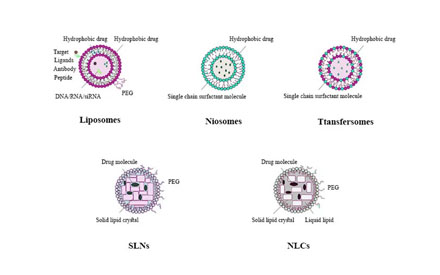Abstract
Cancer therapy faces many challenges, such as inadequate drug loading, low solubility, leakage before reaching the target cells and killing healthy cells. Furthermore, severe side effects resulting from conventional chemotherapy and the other therapeutic methods for cancer treatment are the main reasons for finding more effective methodologies. Thanks to nanomedicine, various nanoparticles (NPs) are designed to overcome the previously mentioned issues. Among these NPs, lipid-based ones are popular with a high potential to be used in cancer therapy. On the other hand, Tyrosine kinase inhibitors (TKIs), with crucial properties for inhibiting the growth of cancerous cells, are the drug of choice in many different types of cancers. In this regard, different lipid-based NPs are being used as nano-drug delivery systems for carrying TKIs.
In this review paper, current research on those novel systems describes how significantly some systems were able to deliver TKIs. In particular, solid lipid nanoparticles (SLNs) are discussed, and their advantages and disadvantages in different drug delivery systems for TKIs were mentioned.

